
Attention Deficit Hyperactivity Disorder (ADHD) is a neurodevelopmental disorder, which can have a very significant impact on pupils’ ability to benefit from the school environment and to make progress that reflects their full potential. There are two main characteristics or types which may exist separately or together. These are the ‘inattentive type’ or ‘hyperactivity and impulsivity’. The primary symptoms of an inattentive pupil are a lack focus and attention, which can lead to mistakes, organisational difficulties and failure to complete tasks. Learners with ‘hyperactive or impulsive’ behaviours may be overactive, lack impulse control and struggle to settle down to tasks and activities. ADHD is a specific learning difficulty that doesn’t usually affect intelligence. Therefore, with inclusive support and reasonable adjustments, these curious, innovative and creative pupils can go on to lead extremely successful and fulfilled lives.
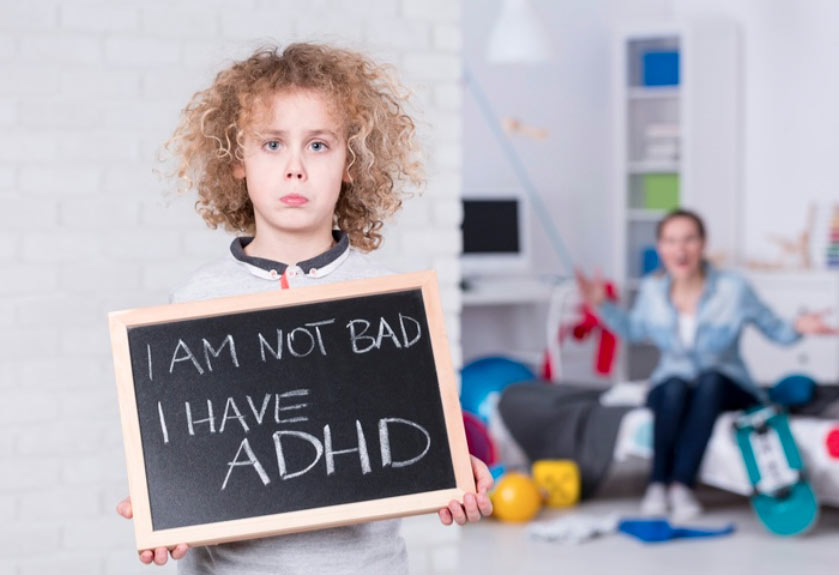
This course responds to the information needs of the whole community centred around supporting the child/young person with ADHD. You will learn how to assess the needs of a learner and go on to develop a support plan consisting of SMART goals and interventions, which you will implement and later review to determine how well it has met the learner’s specific developmental needs.
The target age range is compulsory education (4-18 years), but the course will benefit those in early years settings too. Advisory teachers, therapists and educational psychologists gain access to evidence-based CPD resources that can be used to strengthen capacity in their local authority and schools. Schools can use this course to train individuals or groups of teachers and teaching support staff as part of a school’s improvement plan or a whole-school initiative. NQTs/RQTs also build a secure knowledge of the graduated approach at the start of their career.
Parents and carers are encouraged to take our free short course: Understanding ADHD
Our courses are structured into four sections. Click on the section headings to reveal page titles and some example content.
Learn about ADHD, including its distinguishing characteristics, its prevalence, and behaviours.
- Section objectives
- What is ‘Attention Deficit Hyperactivity Disorder’ (ADHD)?
-
The characteristics of ADHD
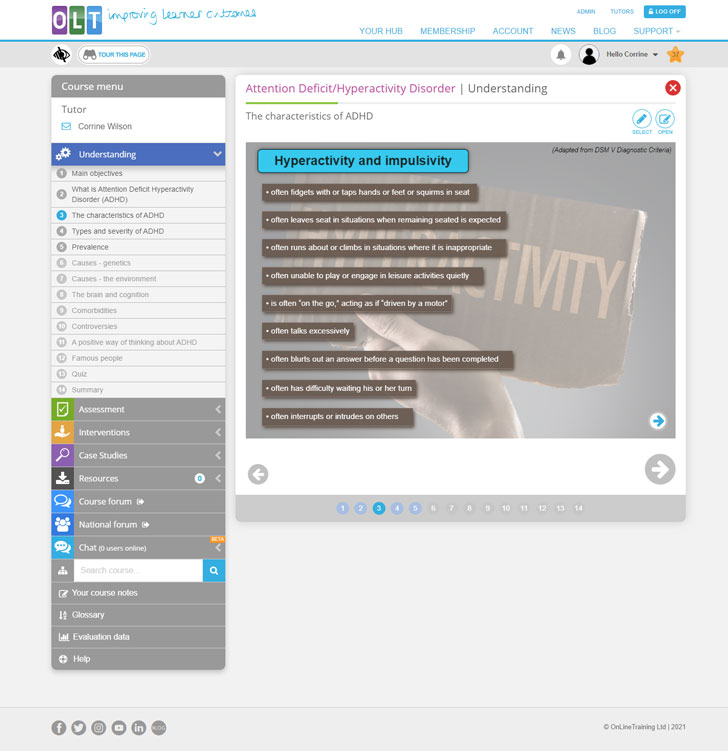
Screenshot from Understanding page 3 - Types and severity of ADHD, meet Jazzy and Liam
- Prevalence of ADHD in the UK
- Causes: genetic factors
- Causes: environmental factors
-
The brain and cognition
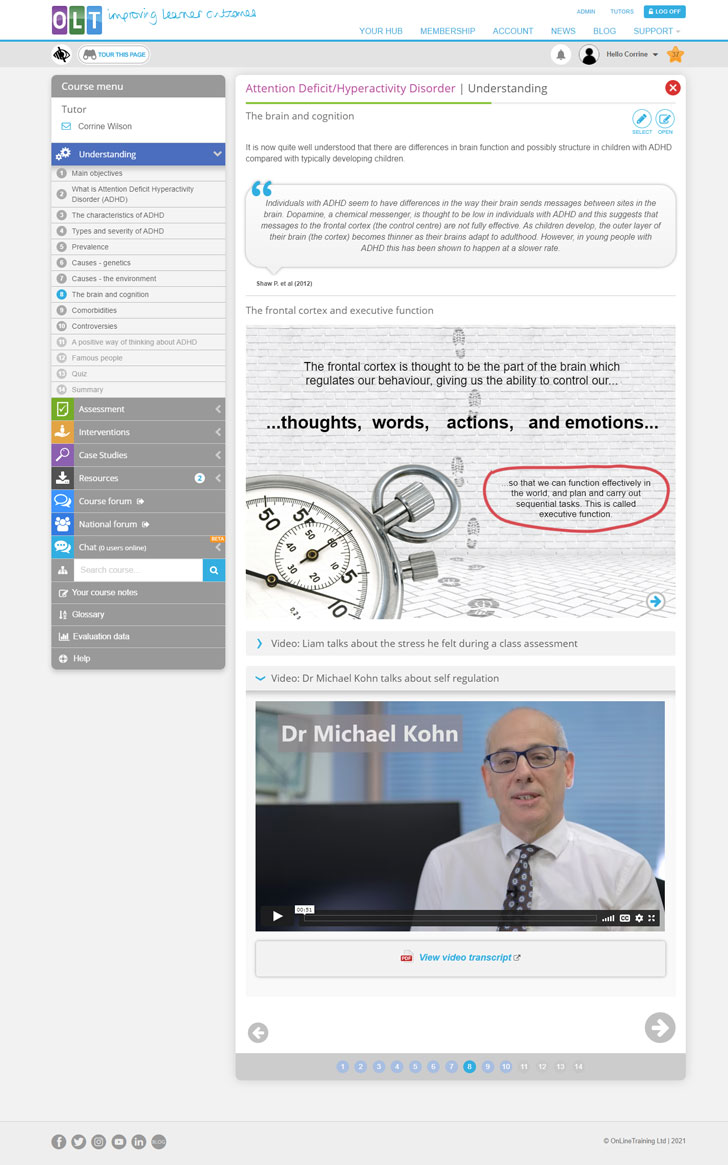
Screenshot from Understanding page 8 - Comorbidities: Other disorders co-occurring with ADHD
- Controversies: Is ADHD a true disorder?
- A positive way of thinking about ADHD
- Famous people with ADHD
- End of section quiz
- Section summary
Understand the need for teachers to assess, and the range of informal assessments that can be carried out in schools.
- Section objectives and your learner profile
- ADHD in the classroom
- Cognition in ADHD
-
Principles of assessment
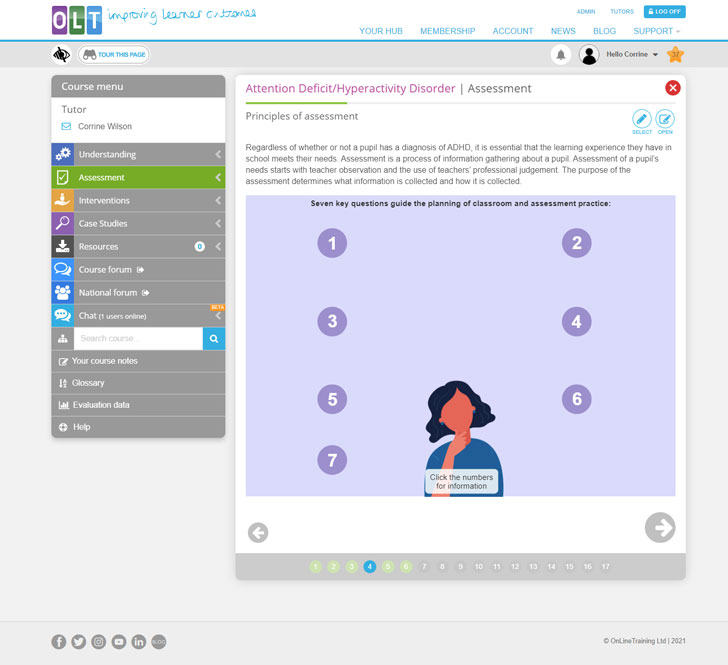
Screenshot from Assessment page 4 - Formative and Summative assessment: Assessment for learning
- Types of assessment: Norm or criterion referenced, functional or curriculum based
- Screening tools
- Criterion-referenced assessment
- Functional behavioural assessment
-
Observing and describing behaviour
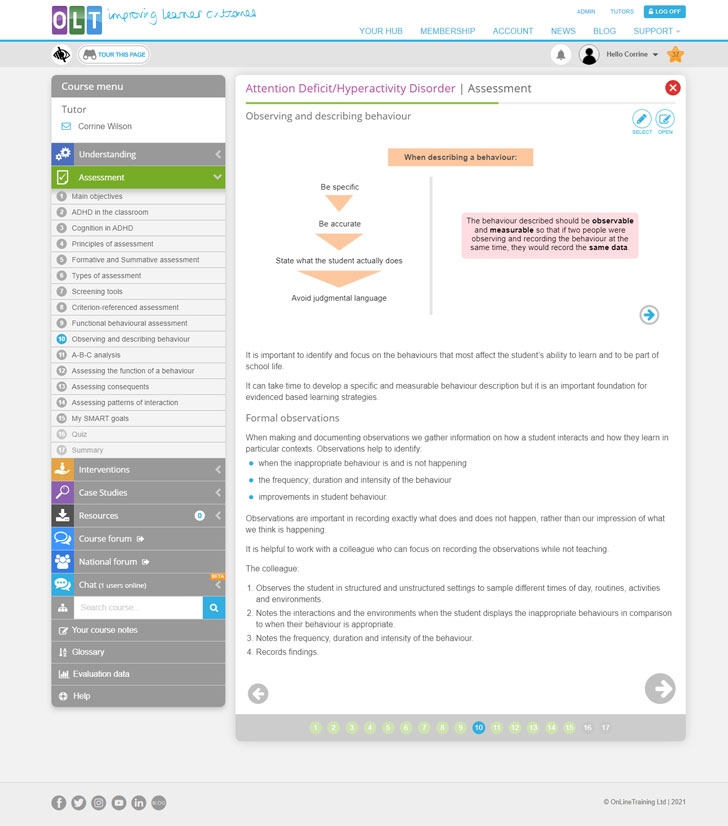
Screenshot from Assessment page 10 - A-B-C analysis
- Assessing the function of a behaviour
- Assessing consequents
- Assessing patterns of interaction
- Course assignment: Your learner’s three SMART goals
- End of section quiz
- Section summary
Explore a range of interventions to meet the needs of pupils with ADHD, including managing difficult behaviour, transitions and social skills.
- Section objectives
- Managing ADHD in the classroom
- Working towards learning goals
- Working towards behavioural goals
-
Using cues and prompts
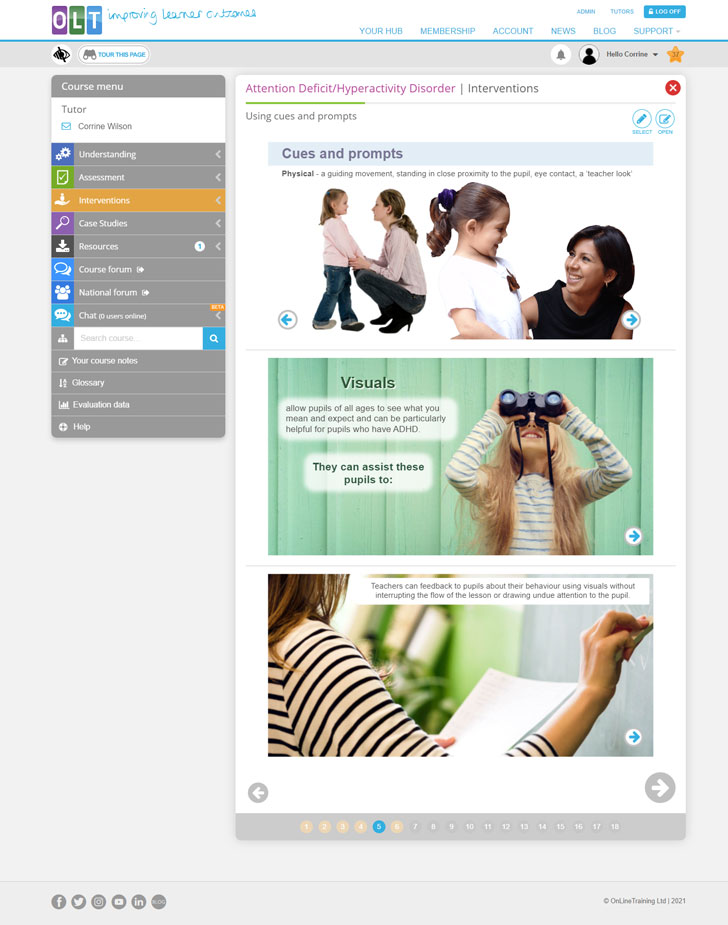
Screenshot from Interventions page 5 - Using praise and reinforcement
- Applying sanctions
- Developing effective social skills
- Managing change, transitions and the playground
- Managing difficult behaviour
- Individual interventions
- Carrying out your intervention
- Working collaboratively
-
The way we communicate
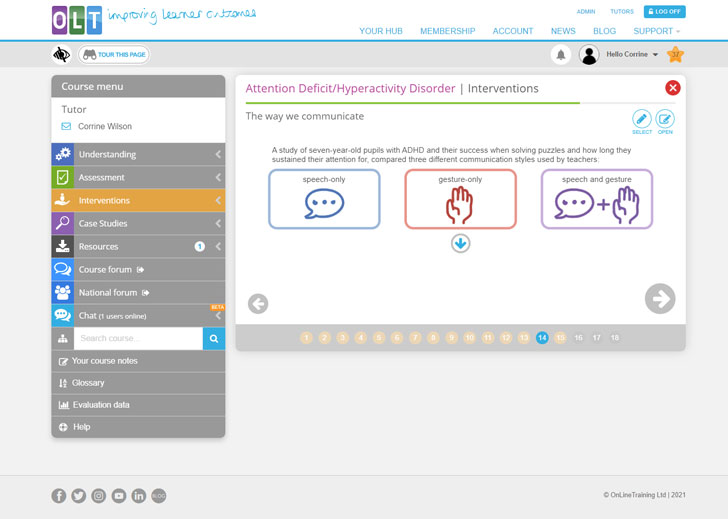
Screenshot from Interventions page 14 - Seven ground rules for successful interventions
- End of section quiz
- Course assignment: Your learner’s interventions
- Section summary
View real examples that illustrate both the pupil voice, and how experienced teachers may manage ADHD in the classroom.
- Introduction
- Case study: Nicola
- Case study: Jazzy
- Case study: Liam
Course learning outcomes
On successful completion of the course, you will be able to:
- summarise the definition of ADHD, its main characteristics and causes
- explain the relationship between ADHD and cognition
- identify comorbidities that can occur with ADHD
- contribute to current debates surrounding ADHD
- outline the principles of assessment and what screening tools are relevant to identification
- determine how to carry out a behavioural assessment
- implement a range of strategies to maximise pupil engagement, such as cues and prompts, rewards and sanctions
- foster effective communication and social skills
- create a support plan for a pupil/group of pupils in your school
Ready to get started?
Choose the option that works for you.
Explore our SEND training options - from free courses to whole-school subscriptions.
Sign up now
